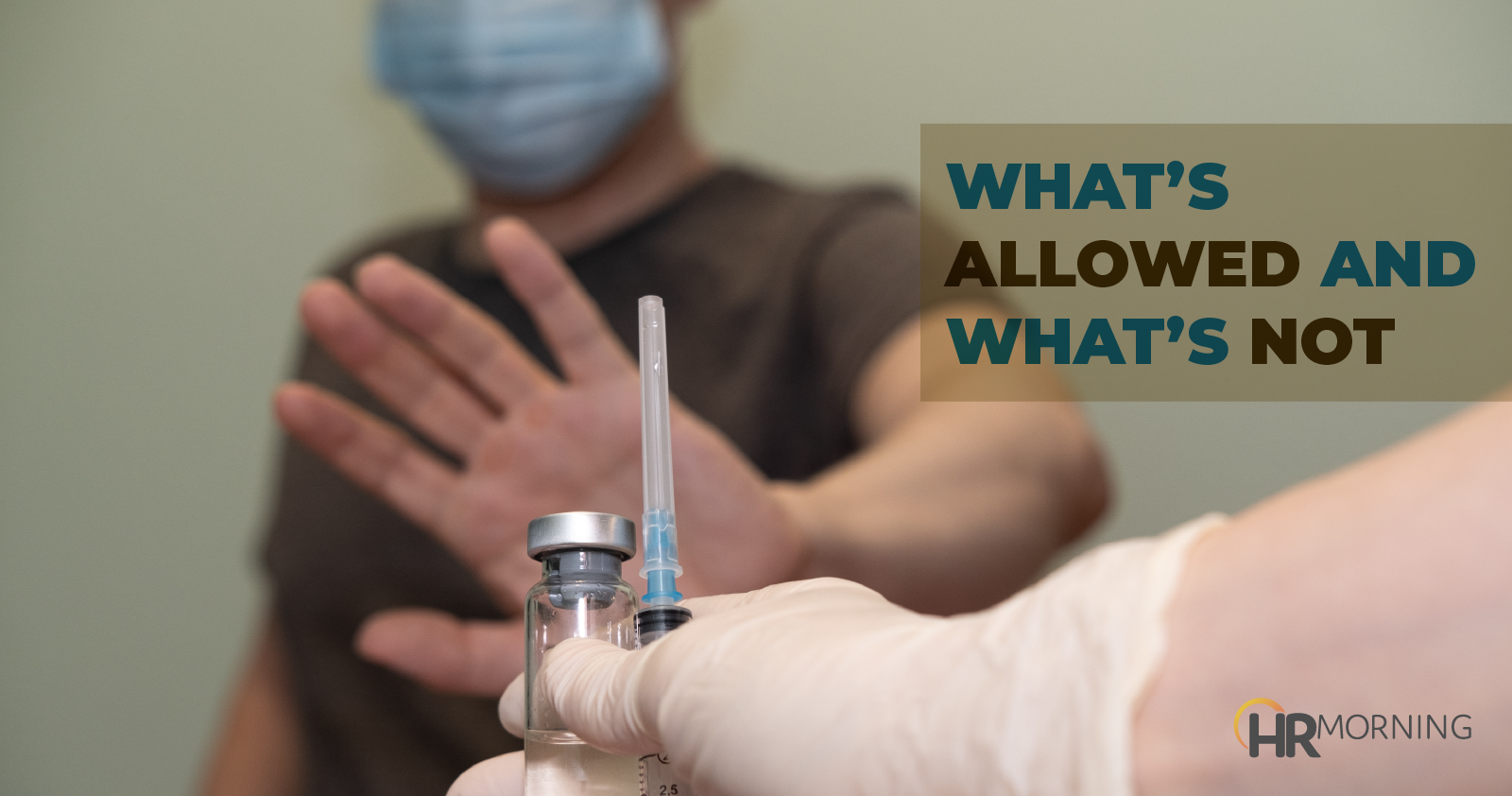Can firms employ a vaccine surcharge for unvaccinated people, covered under the company’s health plan? And, if they can, how much can they charge?
At first, the proposed charges were small, like $25 to $50. Then Delta Air Lines CEO Ed Bastian dropped a bomb. He announced he’d increase employee’s healthcare premium portion by $200 a month for the unvaccinated.
Things to think about
The EEOC issued guidance noting most vaccine premium incentives and surcharges won’t present problems under the ADA or GINA.
But with more companies looking at this road, these five compliance issues need to be considered.
1. Vaccine administration
Firms shouldn’t administer the COVID-19 vaccine. That means you shouldn’t provide the vaccine to staff through your own workforce or a third-party vendor on your behalf.
To avoid vaccine surcharge and incentive limits under the ADA or GINA, staff must get vaccines from:
- a pharmacy
- public health department, or
- healthcare provider not tied to your firm.
2. HIPAA/ACA
COVID-19 vaccine surcharges and incentives can’t exceed 30% of the total cost of an employee’s health insurance premiums under HIPAA/ACA wellness program rules.
And employers must offer alternative standards to get the incentive or avoid the surcharge for people who:
- have trouble getting the vaccine due to a medical condition, or
- for who its medically inadvisable.
3. ACA affordability
Firms can’t take into account any discount or vaccine surcharge avoided by being vaccinated when figuring out its lowest-cost plan expense. Reason: It can cause your company to accidentally “move out of the automatic passing grade offered through the federal poverty line affordability safe harbor (and the associated streamlined reporting through the qualifying offer method).” In addition, it can trigger “B Penalty” liability. Reason: It caused the affordability of your coverage to fall below the rate of pay safe harbor.
4. Religious accommodations
Title VII of the Civil Rights Act requires firms to provide a reasonable accommodation – unless it would pose undue hardship – if a worker says they can’t get the COVID-19 vaccine due to a “sincerely held religious” belief, practice or observance. How do you discern a “sincerely held religious belief”? A good practice: Assume it is. Then, partake in an interactive dialogue with the person to figure out a “reasonable accommodation” for the person and the firm.
5. Biden’s ETS
Don’t think President Biden’s Emergency Temporary Standard (ETS), will make the vaccine surcharge and incentive a moot point. The ETS will only be around for six months, and it doesn’t include employees’ families. Plus, industry experts predict it’ll face legal challenges – all of it will affect the ETS’s effectiveness.


